
You are here
- Home
- New Historical Fiction in the 21st century
New Historical Fiction in the 21st century
- Dates
- Tuesday, October 21, 2014 - 18:30 to Tuesday, December 2, 2014 - 19:30
- Tuesday, November 11, 2014 - 17:30 to Tuesday, December 23, 2014 - 19:30
- Tuesday, December 2, 2014 - 17:30 to Tuesday, January 13, 2015 - 19:30
- Location
- Senate House, University of London, Malet Street, London WC1E 7HU.
New Historical Fiction Seminar Series – Autumn 2014
Time: All meetings take place on Tuesdays from 5.30 – 7.30pm.
Venue: Senate House, University of London, Malet Street, London WC1E 7HU.
Venue map for Senate House.
These seminars will investigate the genre of historical fiction in the 21st century, bringing together academics and practitioners from different disciplines. Each seminar includes a reading from the work of a historical fiction writer. The seminars are free and open to all. We will end with a discussion and Q & A.
The themes for the three seminars are:
Seminar 1: October 21, 2014
Historical fiction today
What are the new developments in writing historical fiction? Is literary historical fiction itself a sub-genre? What does 21st century historical fiction tell us about the times we live in? What are the major influences on historical fiction today?
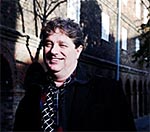 Speakers: Michael Green (Professor in English and Creative Writing, University of Northumbria); Candida Lacey (Publisher and Managing Director, Myriad Editions).
Speakers: Michael Green (Professor in English and Creative Writing, University of Northumbria); Candida Lacey (Publisher and Managing Director, Myriad Editions).
Michael Green is Professor in Creative Writing at Northumbria University and a distinguished Fellow of the University of KwaZulu-Natal, South Africa. His research interests include the uses of history in fiction, which is the subject of his influential monograph Novel Histories: Past, Present, and Future in South African Fiction. He has published around forty journal articles and book chapters, and recently contributed a chapter on ‘The “Experimental Line” in Fiction’ to The Cambridge History of South African Literature.
As Michael Cawood Green, he is author of two acclaimed works of historical fiction, Sinking: A Verse Novella (Penguin, 1997) and For the Sake of Silence (Umuzi/Random House, 2008; Quartet, 2010) which was awarded the prestigious Olive Schreiner Prize. Green is currently completing a work of historical fiction set in Northumberland and South Africa for which he was awarded an Arts and Humanities Research Council Fellowship.
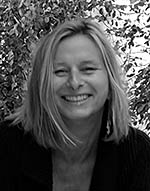 Candida Lacey has been Publisher and Managing Director of Myriad Editions since 2000, and has led the company’s development from a packager of geopolitical atlases to a publisher of literary fiction and graphic novels. She joined Myriad in the mid-1990s after ten years in academic and trade publishing as a commissioning editor for Routledge, Pandora Press, Unwin Hyman, HarperCollins and Jonathan Cape.
Candida Lacey has been Publisher and Managing Director of Myriad Editions since 2000, and has led the company’s development from a packager of geopolitical atlases to a publisher of literary fiction and graphic novels. She joined Myriad in the mid-1990s after ten years in academic and trade publishing as a commissioning editor for Routledge, Pandora Press, Unwin Hyman, HarperCollins and Jonathan Cape.
She was educated at the University of Kent, and has a PhD in English and American Literature from the University of Sussex.
Candida Lacey's presentation is available now [PDF file].
Seminar 2: November 18, 2014
Experiments in the past
Is there potential for greater experimentation in historical fiction, particularly for those writing within the academy? How does writing about the past inform the creative process of fiction writers? How important is language in the development of the historical novel? Are any themes off limits?
Speakers: Emma Darwin author of novels including A Secret Alchemy (2008); Jerome de Groot, Senior Lecturer in English Literature, University of Manchester.
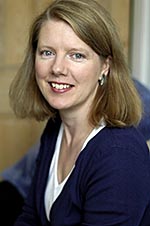 Emma Darwin was born in London and studied Drama at university. After various jobs, her novel The Mathematics of Love was published in 2006 and shortlisted for the Commonwealth Writers’ Best First Book, among other prizes. Her second novel, A Secret Alchemy, was part of a PhD (Goldsmiths) which explored the writing of historical fiction.
Emma Darwin was born in London and studied Drama at university. After various jobs, her novel The Mathematics of Love was published in 2006 and shortlisted for the Commonwealth Writers’ Best First Book, among other prizes. Her second novel, A Secret Alchemy, was part of a PhD (Goldsmiths) which explored the writing of historical fiction.
Alongside her third novel, she is currently writing Getting Started in Writing Historical Fiction for John Murray Learning. She teaches Creative Writing for the Open University, has held Royal Literary Fund Fellowships at Goldsmiths and now the Royal College of Music, and blogs at This Itch of Writing.
 Jerome de Groot is a senior lecturer, head of graduate school and director of research training in the School of Arts, Languages and Cultures at the University of Manchester.
Jerome de Groot is a senior lecturer, head of graduate school and director of research training in the School of Arts, Languages and Cultures at the University of Manchester.
His research interests include: historical novels, popular history, history on television, historical film, museum and heritage studies, the ethics of historical representation and re-enactment studies. His book Consuming History, also published by Routledge in 2008, concerns the ways in which contemporary popular culture engages with history: there are chapters on historical film, television (documentary and drama), museums, computer games, re-enactment and novel writing.
De Groot’s monograph, Royalist Identities (Palgrave Macmillan, 2004), considered the legal, social and cultural pressures attendant upon supporters of Charles I during the 1640s.
Listen to an audio recording of this seminar (duration 1 hour 48 minutes)
Seminar 3: December 2, 2014
Fact and fiction in the historical novel
What is the role of factual research in historical fiction? Has our reading of ‘fact’ and ‘fiction’ become more sophisticated? What is the influence of contemporary culture on our reading of historical fiction? What’s the future of the historical novel?
Speakers: Susanna Jones (Senior Lecturer, Department of English and Creative Writing and Practice-based Research, Royal Holloway, University of London); Vivienne Richmond (Senior Lecturer and Deputy Head of Department, Department of History, Goldsmiths, University of London.
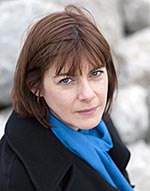 Susanna Jones is the author of The Earthquake Bird, Water Lily, The Missing Person’s Guide to Love and When Nights Were Cold, all published by Picador.
Susanna Jones is the author of The Earthquake Bird, Water Lily, The Missing Person’s Guide to Love and When Nights Were Cold, all published by Picador.
Her work has been translated into twenty languages and won awards including the John Llewellyn Rhys Prize, Betty Trask Award, CWA John Creasey Dagger and Fiction Uncovered.
She teaches on the Creative Writing MA at Royal Holloway University of London.
Vivienne Richmond is a Senior Lecturer and Head of the History Department at Goldsmiths, University of London, where she teaches an undergraduate module, The Fictional Nineteenth Century, which explores and advocates the use of fiction as a source for historians.
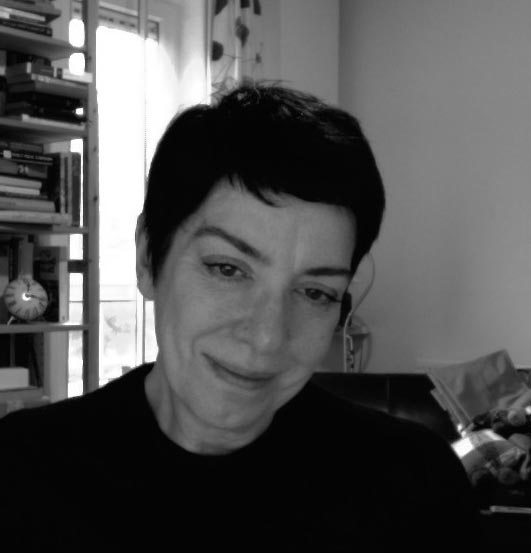
Her research focuses on the social and cultural effects of industrialisation, especially in relation to poverty, and she is the author of Clothing the Poor in Nineteenth-Century England (Cambridge University Press, 2013).
Listen to an audio recording of this seminar (duration I hour 36 minutes).
Organized by the OU’s Contemporary Cultures of Writing Research Group in collaboration with the Institute of English Studies, UL.
If you have any queries, please contact series convenor Sally O'Reilly, Lecturer, Creative Writing (sally.oreilly@open.ac.uk), Department of English, The Open University.
Contact Us
Contact us by email:
CCWritingOU@open.ac.uk
The Postal Address is:
Department of English and Creative Writing
The Open University
Walton Hall
Milton Keynes
MK7 6AA
Tel +44-1908-652092